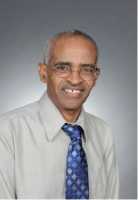02 Feb Annual CT Lung Cancer Screening Among Former Smokers Remains Underutilized
MedicalResearch.com Interview with:
Ahmedin Jemal, DVM, PHD
Vice President, Surveillance and Health Services Research
American Cancer Society, Inc.
250 Williams St.
Atlanta, GA 30303
MedicalResearch.com: What is the background for this study?
Response: In December 2013, the United States Preventive Services Task Force (USPSTF) recommended annual screening for lung cancer with low dose computed tomography (LDCT) for current or former heavy smokers who quit within the past 15 years.
A previous study estimated that only 2-4% of heavy smokers received LDCT for lung cancer screening in 2010 in the United States. We sought to determine whether lung cancer screening among high risk smokers increased in 2015, following the USPSTF recommendation in 2013.
MedicalResearch.com: What are the main findings?
Response: We found that the percentage of heavy current or formers smokers who received lung cancer screening in the past year remained low between 20010 and 2015 (3.3% in 2010 and 3.9% in 2015).
In 2015, there were 6.82 million current or former heavy smokers eligible for lung cancer screening in the United States, but only 262,700 received it.
MedicalResearch.com: What should readers take away from your report?
Response: Although lung cancer screening could potentially avert thousands of lung cancer deaths each year, annual LCDT screening among heavy current and former smokers remains low and unchanged following the USPSTF recommendation.
MedicalResearch.com: What recommendations do you have for future research as a result of this study?
Response: Our findings underline the need to educate healthcare providers and smokers about the benefit and risk of lung cancer screening for informed decision making. In addition, since over half of eligible individuals for lung cancer screening are uninsured or Medicaid insured, there is a need to expand access to care to low income persons. It is also important to expand high volume, and high-quality radiology centers for timely management of patients.
MedicalResearch.com: Thank you for your contribution to the MedicalResearch.com community.
Citation:
Note: Content is Not intended as medical advice. Please consult your health care provider regarding your specific medical condition and questions.
More Medical Research Interviews on MedicalResearch.com
[wysija_form id=”5″]
Last Updated on February 2, 2017 by Marie Benz MD FAAD

